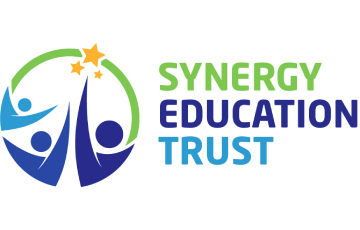Phonics
The teaching of phonics is crucial to children’s early reading development. As a school we follow the Little Wandle Letters and Sounds revised as a scheme of work. The programme focuses on securing word recognition skills, which are essential for children to decode and encode word accurately.
At Boundary we follow the programme from phase one to phase five. Phase one focuses on promoting speaking and listening, phonological awareness and oral segmenting and blending. Phase two to phase five focus on high quality phonic work to help children develop fluent word reading and spelling skills.
Phonics sessions are taught in a highly structured programme of daily lessons from Nursery to Year One. It is taught in differentiated groups according to the children’s phonological awareness and development. These sessions follow the teaching sequences of ‘ revisit and review, teach, practise and apply' where teachers use a variety of interactive teaching methods to support the children’s learning. These include use of the interactive whiteboard, songs, letter rhymes, flash cards, small groups activities, games and whiteboard work.
The children’s progress of phonics knowledge, reading and spelling of words is formally assessed every half term, as well as ia baseline at the beginning of each academic year. Daily assessments during phonics sessions enable our phonics groups to be fluid. These assessments ensure that teachers have a clear understanding of any gaps in knowledge, which can then be addressed within other teaching sessions.
To support the children in the application of phonic knowledge children are provided with home reading books that focus on the sounds they have been working on in school. This provides the children with an opportunity to apply the skills they have learnt at school and be successful in reading at home.
Early Years
Right from the start, children are taught to tune into sounds which they hear in both the classroom and outdoor environment. They learn how to listen through story, games, rhymes and social interaction. As a school we use Little Wandle Letters and Sounds revised to support the teaching and learning. Children are taught phonics daily for a minimum of 20 minutes. The children are initially taught to segment and blend word orally and then move on to segmenting and blending to read words, captions and sentences. As the children develop at different rates they then join differentiated daily phonics groups that are specific to their needs. Some children receive additional phonics sessions during the day if this is required. Children receive one to one intervention sessions with a reading teacher to support them if they are falling behind.
The teaching of phonics at Boundary is a curriculum priority. This is because good phonic skills ensure that the children make good progress with reading, writing and spelling.
The daily phonics sessions are very focused and follow the teaching sequence below.
Phonics Teaching Sequence
• Revisit and review- this part of the session revisits known sounds, common exception words and may include segmenting and blending of words using known sounds
• Teach- this part is where new sounds and/or common exception words are explicitly taught
• Practice/Apply- this part of the session gives children the opportunity to apply the new sounds and words they have been taught with either a reading or writing focus.
• Revisit- this part of the session revisits key learning and addresses any misconceptions.
In addition to daily phonics children are provided with decodable reading books, which include sounds they can recognise confidently. Children can therefore practice the skills they have been taught at school at home with their parent or carer allowing them to become successful readers.

